Social media abuse to be treated like offline hate crimes
The Crown Prosecution Service will target internet trolls with new online rules
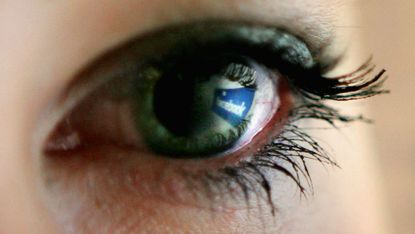
Abuse on social media will soon carry the same penalties as offline offences under new hate crime rules announced by the Crown Prosecution Service.
Writing in The Guardian, Director of Public Prosecutions, Alison Saunders said the CPS will in future seek stiffer penalties for abuse on Twitter, Facebook and other social media platforms.
Citing last week's far-right rally in Charlottesville, Virginia, which left one woman dead, Saunders said countering online abuse was a priority because, "left unchallenged, even low-level offending can subsequently fuel the kind of dangerous hostility that has been plastered across our media in recent days".
Subscribe to The Week
Escape your echo chamber. Get the facts behind the news, plus analysis from multiple perspectives.

Sign up for The Week's Free Newsletters
From our morning news briefing to a weekly Good News Newsletter, get the best of The Week delivered directly to your inbox.
From our morning news briefing to a weekly Good News Newsletter, get the best of The Week delivered directly to your inbox.
"Whether shouted in their face on the street, daubed on their wall or tweeted into their living room, the impact of hateful abuse on a victim can be equally devastating," she added.
The new policy covers abuse based on race, religion and physical disability - as well as homophobic, transphobic and biphobic hate crimes.
The plans "are meant to encourage more people to come forward and press courts to impose longer sentences", says Reuters, after a series of high-profile instances of successful successful prosecutions of people who had abused lawmakers and other public figures online.
According to the CPS, 15,442 hate crime prosecutions were completed last year, the highest on record, with a conviction rate of 82.2 per cent.
However, official figures also show a 20 per cent rise in all forms of hate crime reported to the police in the first three months of the year. Commentators have pointed to the divisive nature of last year's EU referendum, and this year's terror attacks in London and Manchester, as factors in the surge in hate crime.
This has led to action in other areas of the criminal justice system. "Senior figures are working on updating laws and policies to reflect the fact that offending online has increased not just in volume, but the damage it can do by inciting people to carry out violent acts," says The Guardian.
Create an account with the same email registered to your subscription to unlock access.
Sign up for Today's Best Articles in your inbox
A free daily email with the biggest news stories of the day – and the best features from TheWeek.com
-
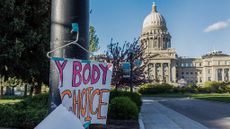 'Horror stories of women having to carry nonviable fetuses'
'Horror stories of women having to carry nonviable fetuses'Instant Opinion Opinion, comment and editorials of the day
By Harold Maass, The Week US Published
-
 Haiti interim council, prime minister sworn in
Haiti interim council, prime minister sworn inSpeed Read Prime Minister Ariel Henry resigns amid surging gang violence
By Peter Weber, The Week US Published
-
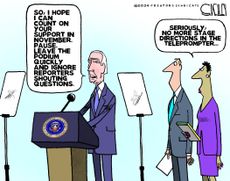 Today's political cartoons - April 26, 2024
Today's political cartoons - April 26, 2024Cartoons Friday's cartoons - teleprompter troubles, presidential immunity, and more
By The Week US Published
-
 How cybercriminals are hacking into the heart of the US economy
How cybercriminals are hacking into the heart of the US economySpeed Read Ransomware attacks have become a global epidemic, with more than $18.6bn paid in ransoms in 2020
By The Week Staff Last updated
-
 Language-learning apps speak the right lingo for UK subscribers
Language-learning apps speak the right lingo for UK subscribersSpeed Read Locked-down Brits turn to online lessons as a new hobby and way to upskill
By Mike Starling Published
-
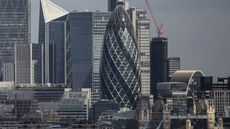 Brexit-hobbled Britain ‘still tech powerhouse of Europe’
Brexit-hobbled Britain ‘still tech powerhouse of Europe’Speed Read New research shows that UK start-ups have won more funding than France and Germany combined over past year
By Mike Starling Published
-
 Playing Cupid during Covid: Tinder reveals Britain’s top chat-up lines of the year
Playing Cupid during Covid: Tinder reveals Britain’s top chat-up lines of the yearSpeed Read Prince Harry, Meghan Markle and Dominic Cummings among most talked-about celebs on the dating app
By Joe Evans Last updated
-
 Brits sending one less email a day would cut carbon emissions by 16,000 tonnes
Brits sending one less email a day would cut carbon emissions by 16,000 tonnesSpeed Read UK research suggests unnecessary online chatter increases climate change
By Joe Evans Published
-
 Reach for the Moon: Nokia and Nasa to build 4G lunar network
Reach for the Moon: Nokia and Nasa to build 4G lunar networkSpeed Read Deal is part of the US space agency’s plan to establish human settlements on the lunar surface
By Mike Starling Last updated
-
 iPhone 12 launch: what we learned from the Apple ‘Hi, Speed’ event
iPhone 12 launch: what we learned from the Apple ‘Hi, Speed’ eventSpeed Read Tech giant unveils new 5G smartphone line-up
By Mike Starling Last updated
-
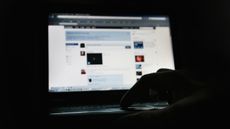 Russian agency behind US election meddling ‘created fake left-wing news site’
Russian agency behind US election meddling ‘created fake left-wing news site’Speed Read Facebook says real reporters were hired by fake editors to write about US corruption
By Holden Frith Published